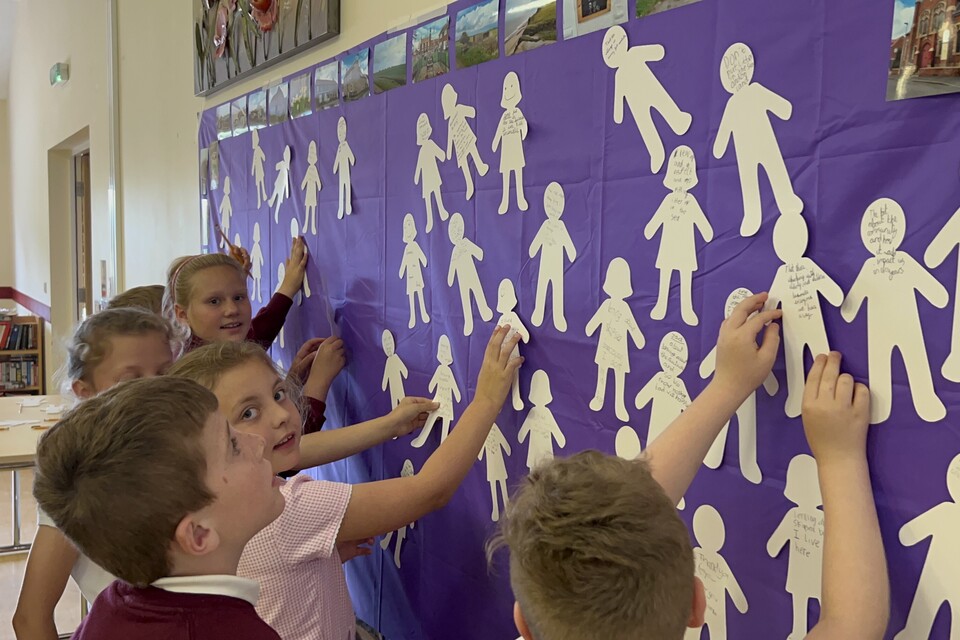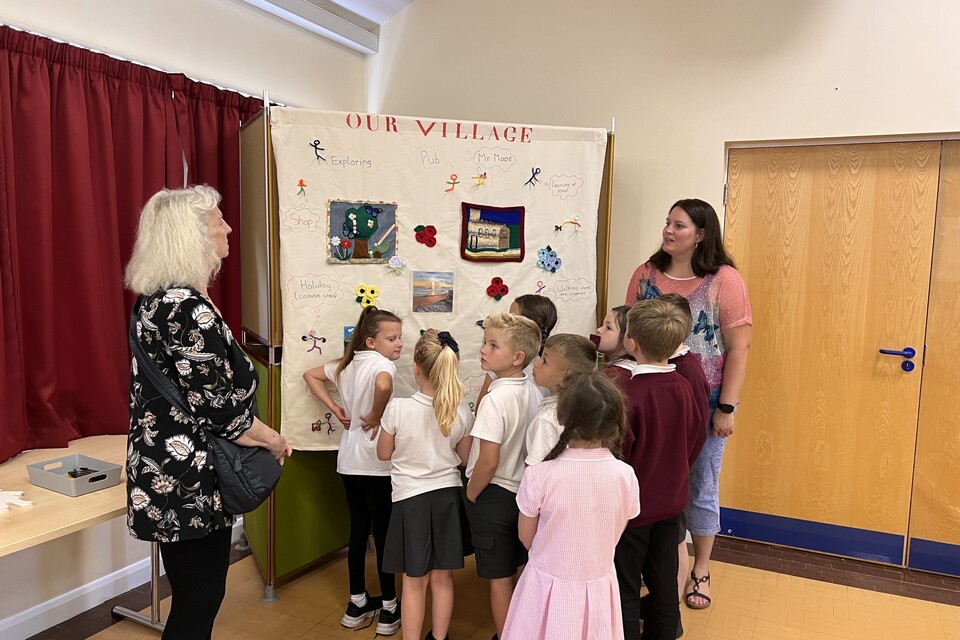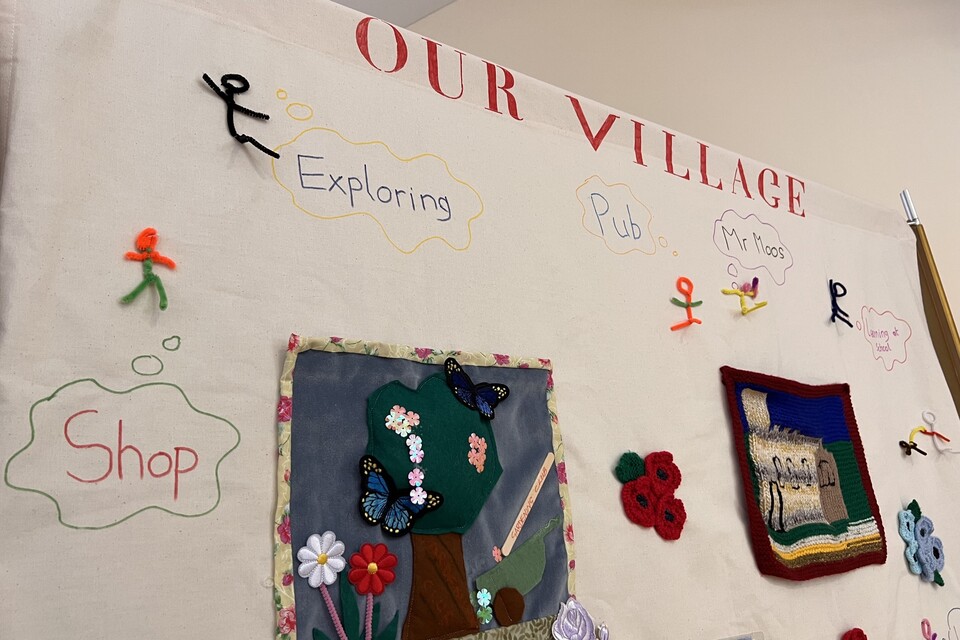Children in Skipsea share their visions for the future of the coast
A community project to find out how much coastal communities value where they live and how that is impacted by climate change, is being unveiled at an event in Skipsea this week.

Skipsea collage created by schoolchildren and the local craft group as part of the study
Skipsea residents and school children will be unveiling a digital booklet, capturing views of where they live and what matters to them. A collage created by Skipsea residents will also be on show to reflect on what they value most about their coastal community.

Skipsea Primary School giving their views of living on the coast
Led by the University of Hull and working with the Environment Agency’s local and national teams, East Riding of Yorkshire Council and North Norfolk District Council, the project involved working with children from Skipsea Village Primary School and older representatives of the community, to find out the different intergenerational views of those living in a coastal area.
The study was created to help the Environment Agency and local authorities better understand communities’ perspectives about where they live and work in the context of climate change.
Over three months, the project has gathered insights and stories from older and younger generations in Skipsea. These stories are being shared at an event in Skipsea this week to stimulate further conversations about perceptions of the legacy and history of their place and their view of the future.
Flood and coastal risk management authorities will now draw the communities’ stories and insights into their plans to communicate and manage coastal flood risk in the future.

Jacqui Cotton, community resilience manager at the Environment Agency said:
This project has been a great opportunity to take an intergenerational approach to engagement to see how we can better understand communities’ perspectives about where they live and work in the context of climate change.
Working with children and older generations in Skipsea has given us great insight to what they value most about where they live, such as the importance of access to the beach, and how that could influence the way we manage coastal flood risk and the impacts of climate change well into the future.
Katie Parsons at the University of Hull said:
Children and older community members tend to be the voices left out of conversations concerning approaches to climate adaptation. However, older people have a wealth of knowledge and experience and when coupled with the enthusiasm and creativity of youth these intergenerational dialogues can be a force to engender change. The project created opportunities for diverse voices to be better heard and thus engaged with addressing the impacts of climate change on our coastlines into the future. We are incredibly proud of what the communities have produced in a short amount of time.
Councillor Paul West, portfolio holder for environment and transport at East Riding of Yorkshire Council said:
This is an excellent project, involving local children and older people. I’m particularly interested to hear the views of Skipsea’s school children, for whom climate change is something they have and will continue to grow up with. Their views and experiences are very important as we look at how our coastal communities adapt through the effects of climate change into the future.

Collage created as part of the study
The study is part of the Coastal Transition Accelerator Programme (CTAP) which explores how we can adapt to the effects of climate change on the coast.
England has some of the fastest eroding coastline in Europe. Coastal erosion is a natural, ongoing process that has been happening for thousands of years. But with sea levels continuing to rise into the next century, the rate of coastal erosion in some places will accelerate.
As the risks of erosion increase and accelerate with climate change, we need to explore now how local authorities can work with and support people living, working and using coastal areas that cannot sustainably be defended in the long term.